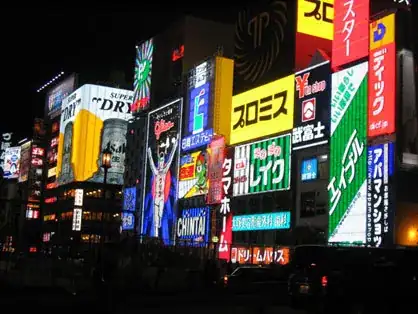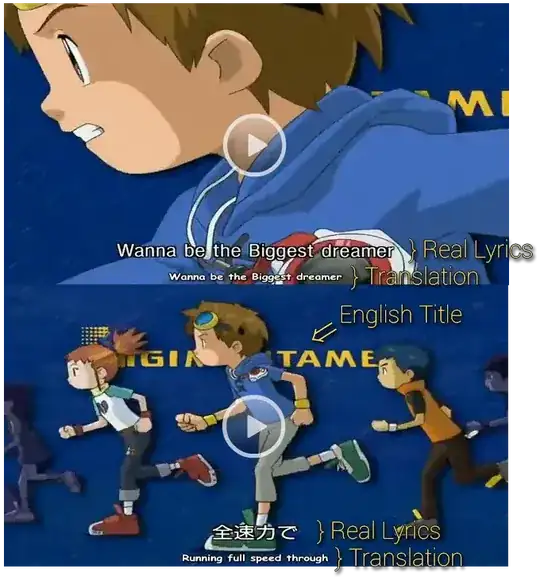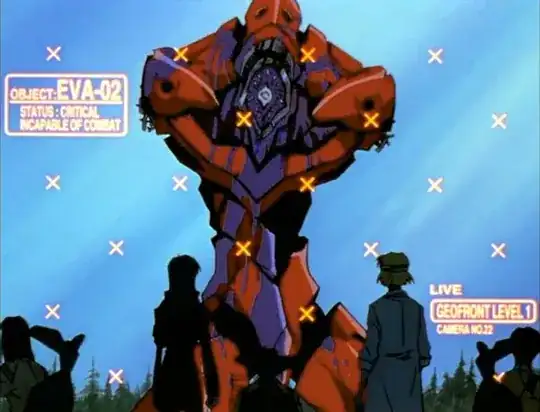There are two different ways that one can use English words in Japanese.
The first is through loanwords. The Japanese language was more-or-less standardized during the Meiji Restoration, in the late 19th century. Before that, Japan was a very isolated culture for a very long time, so a lot of concepts simply didn't exist in the language. As a result, it was decided that rather than creating new words for all of these concepts, they would just borrow the words from other languages. Most of the words came from English, though there are also some from other western languages.
In this case, the words are written in katakana (カタカナ). There are a very large number of loanwords, but it's fairly standardized what is a loanword and what is not. Also, some of the words are pronounced differently in Japanese than English (e.g. energy becomes エネルギ (enerugi) with a hard g sound). In case it's ambiguous how to pronounce English words in Japanese, these are also usually standardized.
That doesn't really represent a use of English, though. The loanwords are borrowed from English, but both the meanings and pronunciations can be radically different from the English words. They're better described as Japanese words which are based off English words. The examples you've given don't really fall into the above category, but there are many examples like this so it's worth mentioning.
The other way they can use English is just by writing/speaking in English. The examples you've given seem to fall in this category. This is done to sound/look cool, because most people in Japan only hear and see Japanese for most of their day, so it stands out. Since most Japanese people have at least a passable knowledge of English vocabulary (it's part of the standard curriculum), it's a way to make a statement, sort of like how stylized fonts would be used in English except a bit stronger.
Now that we've made that distinction, we can answer the question. The answer to your question "Why do these English words make their way into otherwise entirely Japanese productions?" is that English is fairly common in Japan, not just in anime/manga. This isn't solely a phenomenon about anime/manga, nor am I convinced that it's particularly common in anime and manga. For instance, you can probably spot several instances of English in this picture of advertising in Osaka (I found 3, with another 2 cases of the Roman alphabet being used to write non-English words, and quite a few katakana loanwords as well):

So in summary, it's because English is common in Japanese culture. But that's not a very satisfying answer by itself. Rather than answering the broad question of why modern Japanese culture often uses English (which I think might be better posed at Japanese.SE with some modifications) I'll address the particular cases you have mentioned, in part because a full answer to the former question is probably impossible and in part because it's off-topic.
Using English is very common in music, where whole lines may be written in (oftentimes broken) English. This is not solely a Japanese phenomenon, as Korean and Chinese pop artists also often use English (Indian pop artists do so very frequently as well, but English is a fairly common language in India). As far as I can tell, it isn't particularly common in anime songs, though of course I don't have any statistics to back that up.
Essentially, it's done in music to sound cool, for the reasons I listed above. It also somewhat expands their audience, since people around the world speak English. I don't know if there's an analogy that would be familiar to people who only speak English, but the closest I could come up with is that Latin is occasionally used in English-language music.
In fact, English use in Japanese music predates J-Pop itself (which is the genre that most anime music falls in). Japanese rock musicians in the 1960s and '70s were mostly inspired by their western counterparts, most notably the Beatles. For a time, Japanese rock singers believed that the Japanese language was too restrictive to be able to sing rock-style, so most of them sung in English (see here). The first really successful band to sing in English was Happy End, but even after that, people continued using English at least occasionally. It's possible to write long academic papers on the use of English in Japanese music, but I'll stop here for brevity.
For Digimon Tamers, and indeed many series, the title is displayed in English. In fact, most series now have both an English and a Japanese title, which do not always mean the same thing. In the case of Digimon, the word 'Digimon' comes from two English words, 'Digital' and 'Monster'. Tamers is also an English word. The title could be written 「デジモンテイマーズ」, but it's more authentic-looking to use the English title. As for why the title was chosen in English to begin with, again, this is best explained via the rule-of-cool, since English sounds different and interesting. Of course, not all shows do this, and it's mostly a stylistic decision, so it's probably impossible to give a better explanation.
As for Eva, most computer systems, even in Japan, are based on English. Most programming languages are also based on English. As a result, it seems more authentic (or at least, it did at the time) to have computers and technology things entirely or mostly in English. I don't know if this is changing, now that there are Japanese-language programming languages, operating systems, etc.
As for "BEER", it is not uncommon in Japan to advertise beer in English. This example is a fairly small company which I found from reading Moyashimon, but it's certainly not uncommon for beer to be written in English. I don't really know why. My suspicion is that this is because beer originated as a western drink.
I could probably go on for a while, but I think this answer is already too long and there's no point to continuing to list examples, so I'll end it here. As I said above, this might make a good question on Japanese.SE if you phrase it appropriately. It could also make a good question on the proposed Japanese Culture site.


